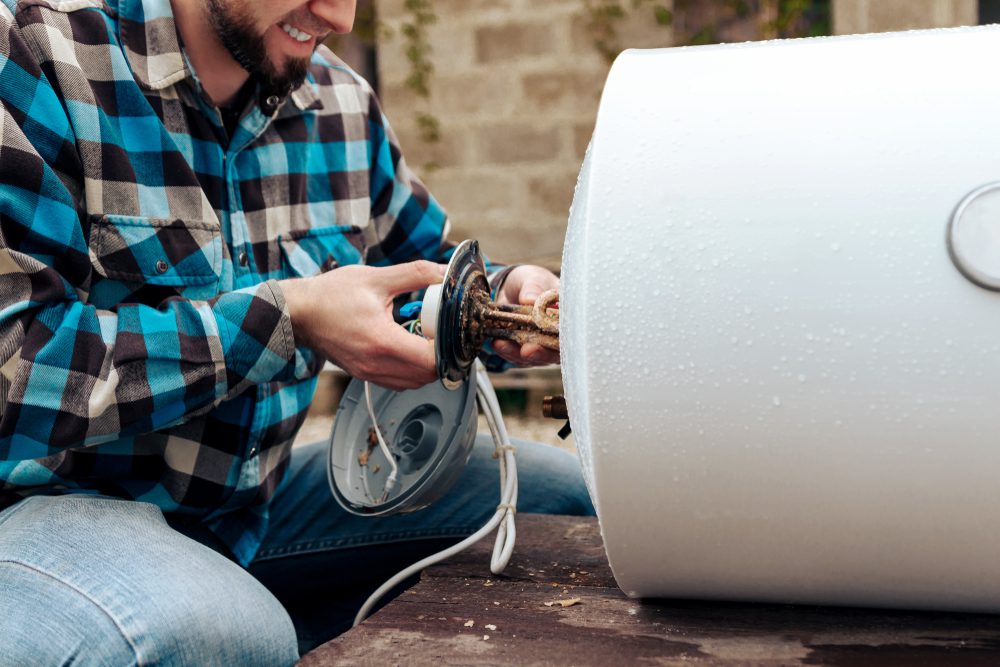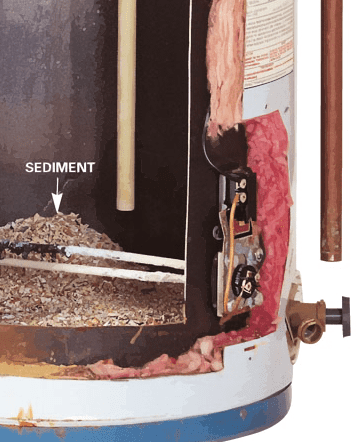This article which follows about The Importance of Water Heater Maintenance is absolutely entertaining. Read on and make your own personal findings.

A water heater is just one of the most essential standard appliances that can be located in a home. With water heaters, you do not need to go through the anxiety of home heating water by hand every time there is a need to take a bath, do the laundry, or the meals. There is always a possibility that your water heater would act up as with most mechanical devices.
It is necessary to note any type of little malfunction and tackle it promptly prior to things get out of hand. The majority of times, your hot water heater starts to malfunction when there is an accumulation of sediments as a result of continuous usage. As a safety measure, routine flushing of your hot water heater is recommended to avoid sediment accumulation and stop functional failure.
Usual water heater emergency situations and exactly how to manage them
Too little warm water
It might be that the water heating system can not sustain the warm water need for your apartment. You might update your water heating system to one with a bigger capability.
Fluctuating water temperature level.
Your water heater could begin generating water of various temperatures usually ice hot or cold hot. In this scenario, the first thing you do is to ensure that the temperature is readied to the desired level. If after doing this, the water temperature level maintains changing during showers or other tasks, you could have a faulty thermostat. There may be a requirement to replace either the thermostat or the home heating system of your water heater.
Leaking hot water heater storage tank.
In this situation, you should transform off your water heating unit, allow it to cool down, as well as thoroughly look for the resource of the issue. At times, all you require to do is to tighten a couple of screws or pipe links in cases of small leakages. If this doesn't function and the leakage lingers, you may require to employ the services of a professional for a suitable substitute.
Discolored or smelly water
When this takes place, you need to know if the problem is from the water or the container resource. If there is no funny scent when you run cold water, after that you are certain that it is your hot water heater that is defective. The smelly water can be brought on by rust or the buildup of bacteria or sediments in the hot water heater tank. When you observe this, you can attempt flushing out your tank or replacing the anode if the trouble lingers. The feature of the anode is to clean germs from your container. Given that the anode rod replacement calls for a comprehensive expertise of your water furnace, you will certainly require the assistance of an expert.
Verdict
Some homeowners disregard little caution and minor faults in their water heater unit. This just brings about more damages as well as a possible complete break down of your appliance. You should deal with your hot water heater mistakes as soon as they come up to stay clear of even more expenditures and unneeded emergency problems.
With water heaters, you do not require to go through the tension of home heating water by hand every time there is a need to take a bathroom, do the laundry, or the meals. It may be that the water heater can not support the hot water need for your apartment or condo. Your water heating unit could start generating water of various temperatures typically ice scalding or chilly warm. If there is no amusing odor when you run cold water, after that you are certain that it is your water heater that is faulty. The odiferous water can be triggered by corrosion or the accumulation of microorganisms or sediments in the water heater storage tank.
Water Heater Burst: Why This Happens And What To Do Next
Water Heater Explosion Warning Signs
Since storage water heaters are made of metal and store large volumes of heated water, they carry an increased risk of leaking or even exploding as they begin to rust at the fittings and seams over time. If the thermostat controlling the water temperature within the tank is faulty, or if mineral buildup inside the water heater prevents the thermostat from sensing the water’s temperature correctly, the water could become overheated. This will expand its volume within the tank, causing it to press at the tank’s fittings and seams. If these fittings and seams are rusted or corroded, the pressure could result in a leak or even an explosion.
Here are some risk factors and warning signs of an increased risk of water heater leak or explosion:
Your water heater is more than 10 years old. Your water heater makes clanking, banging or rumbling noises as it heats up, indicating that sediment has built up and hardened inside the tank. There is visible rust on the outside of the water heater, especially located at the pipe fittings or the seams that run down the tank. There is rusty water coming from your water heater, indicating that there may be rust building up inside. Your water heater is leaking, which could indicate either a crack somewhere in the tank or a malfunctioning temperature-and-pressure (T&P) relief valve. What To Do When Water Heater Leaks
If you find water dripping or seeping out of your water heater, or pooling around it, it means your water heater is leaking. If you find a leak, it may be best to call a plumbing professional to diagnose the problem and determine how best to handle it. If you choose to tackle it on your own, there are a few things you can do.
TURN OFF THE POWER
Next, shut off the power to the hot water tank at your home’s electrical breaker box. If you don’t shut off the power, the heating elements within the tank could continue to stay hot, which could pose a fire risk.
If you have a gas-powered water heater, you’ll also need to shut off the gas line leading into the tank.
FIND THE LEAK
Now it’s time to determine where the leak is coming from. Likely locations are the T&P valve, the drain valve or one of the pipes or fittings that feed into the top of the tank. If you see any rust or corrosion on the outside of your water heater’s tank, pipes or fittings, these could also be the source of the leak.
REPAIR THE LEAK
Once you determine the source of your water heater leak, you’ll have a better idea of what steps you need to take to fix the problem. It may be a simple fix—such as using a wrench to tighten fittings or replacing the T&P valve—but it may be something more complicated. You may even need to drain the tank, remove the water heater and install a new one.
https://www.abchomeandcommercial.com/blog/water-heater-burst/

Do you enjoy reading up on Common Hot Water Heater Problems? Place a remark directly below. We will be interested to see your opinion about this blog post. We hope that you visit us again in the future. Appreciated our posting? Please share it. Let another person discover it. Thanks a lot for your time. Come back soon.
Visit Our Site